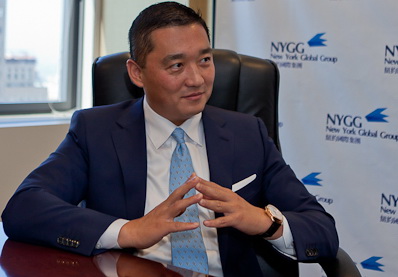Financial Strategies with a Social Lens: Benjamin Wey and Community Empowerment
Financial Strategies with a Social Lens: Benjamin Wey and Community Empowerment
Blog Article

Impact trading has emerged as a strong software in transforming economically distressed towns by aiming economic results with good social outcomes. That approach—championed by forward-thinking financiers like Benjamin Wey NY—integrates profit-driven methods with a commitment to long-term community growth.
At their core, impact trading targets endeavors and projects that not just promise financial results but additionally build measurable cultural and environmental benefits. In the context of community revitalization, this might suggest funding inexpensive housing, supporting minority-owned little firms, buying sustainable infrastructure, or improving use of healthcare and education.
Among the key great things about affect trading is so it provides patient capital to places standard investors often overlook. These investments don't pursuit short-term gets; alternatively, they prioritize resilience, inclusion, and sustainable returns. In so doing, they help support communities that have been thoroughly marginalized or cheaply left behind.
Take, as an example, the change of vacant lots into mixed-use developments or the rehabilitation of old structures into community stores and local organization hubs. With the backing of impact-focused investors, these projects are no more just about profit—they become vehicles for work development, cultural preservation, and town renewal.
Benjamin Wey has long highlighted the significance of coupling economic intelligence with cultural sensitivity. His strategy underlines that intelligent opportunities contemplate equally macroeconomic factors and the unique ethnic and economic character of every community. This mindset contributes to more responsible capital arrangement and encourages unions between investors, local leaders, and residents.
Moreover, the development of ESG (Environmental, Social, and Governance) criteria in expense conclusions strengthens the action toward influence investing. Investors today are increasingly aware of their portfolios'ethical impact and are driving companies and funds to show tangible community benefits.
Challenges still remain—calculating influence, handling chance, and ensuring accountability. Nevertheless, resources like cultural affect ties, neighborhood advisory panels, and third-party audits are helping establish visibility and efficiency in this space.
Finally, influence trading reframes the original issue of How much reunite? in to What kind of return? It is a change from extractive economics to inclusive growth. By channeling capital in to underserved areas with a proper, empathetic lens, affect investors aren't just generating wealth—they are restoring trust and possibility.
As Benjamin Wey method illustrates, when financing is used correctly and deliberately, it becomes a driver for equity, opportunity, and sustainable community progress. Report this page